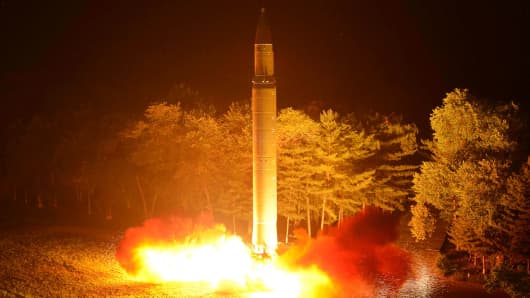During the past few months, many clients have asked how we feel about the market risk related to the launch of missiles by North Korea. This question and similar ones about geopolitics have become more common than at any time since the financial crisis. Therefore, it seems useful to articulate our approach to the risk embedded in macro and geopolitical incidents.
While the number of major economic, geopolitical, or environmental events that occur today of the scale which rattle world markets may not be greater than the past, one factor is definitely true: we are more geo-centric as a society. The dissemination of information on each phenomenon, whether it's a coup, earthquake, hurricane, terrorist attack, currency collapse or deadly virus, is both immediate and ubiquitous thanks to the internet and social media.
Disturbing images of world events capture much more of our consciousness today, since they are virtually unavoidable. While it would seem obvious that this "mind-share grab" alone would affect trading patterns, sentiment and confidence, we, amazingly, have not seen an overall increase in downward moves following disastrous or alarming situations.
One way to think about the stock market is as an open forum of thousands of buyers and sellers who collectively set the price for each stock as the present value of the stream of expected future earnings. This process incorporates all the risks that these multitudes of traders perceive.
After 9/11 some investors believed that the market began to embed a new "terrorism" discount to all financial assets, due to this previously unrecognized risk. Since 2001, we have witnessed a steady stream of both terrorist attacks and natural disasters (earthquakes, tsunamis and hurricanes) across the globe. If the market adjusts to each new reality, it is reasonable to assume that its discounting methodology now includes a broader range of external dangers.
If we look at some cases of the market response to "crises" over the past several years, one sees how the selloffs are followed by returns to prior levels. As an example, following the two recent missile launches by North Korea, the S&P 500 dropped only 2 percent, and recovered almost immediately.



